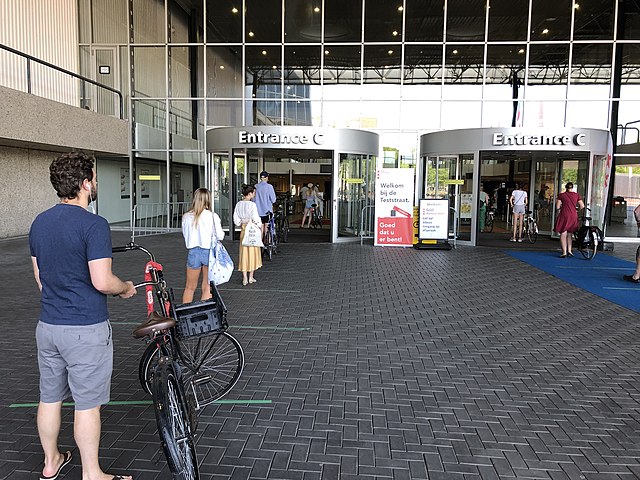30 November 2023 Seminar: COVID-19 Lockdowns and Mental Health, A Simulation Approach

For the final Pandemics & Society Seminar of our Fall 2023 series, we are pleased to welcome Kristina Thompson (Wageningen University). The seminar will be held on Thursday, 30 November at the normal time (1600 CET). More information about our speaker and the presentation is below. You can sign up for email notifications about the seminar series, including the Zoom details, here.
Abstract
To better prepare for future pandemics, revisiting lessons from the COVID-19 period may be useful. Doing so may help to identify the trade-offs of different containment and mitigation measures. While non-pharmaceutical interventions, particularly lockdowns, helped to slow the spread of COVID-19, they were not without negative consequences of their own. A large body of evidence has shown that depressive disorder, or depression, rose markedly during these periods. This is problematic, as depression is one of the leading causes of disability worldwide. Despite the large number of studies on the topic, these studies are largely based on statistical models, rather than computational ones. This prevents us from comparing actual and hypothetical scenarios, and limits our ability to tease out the elements of lockdowns that may have impacted depression. To that end, a microsimulation model was developed, named COMMA (COvid Mental-health Model with Agents). Microsimulation models are well-suited to exploring policy impacts on specific population sub-groups.
Individuals’ characteristics and actions during lockdowns were based on the Lifelines cohort, a representative sample of the northern Netherlands. Data from the largest city in this sample, Groningen, were used (n=5,193). Information on individual characteristics (e.g. gender, age) was taken from waves prior to the COVID-19 pandemic. Information on actions during the pandemic (e.g. working from home, maintaining physical distance) was taken from periodic COVID-19-specific questionnaires. Daily COVID-19 case information for the city of Groningen was used from the National Institute for Public Health and Environment (in Dutch: Rijksinstituut voor Volksgezondheid en Milieu). In COMMA, the probability that an individual is at increased risk of depression is estimated in several steps. First, from a matrix of ten agent characteristics, the probability of taking one of ten actions during different types of lockdowns is derived. Second, from a matrix of ten actions an individual could take during absent, partial or full lockdowns, the probability of being depressed is derived. Based on a simulation with 6,000 individuals set between 2 February 2021 and 4 February 2022, hard lockdowns in particular were associated with an increased risk of depression. In a simulation with a hard lockdown for this entire period, 75% of individuals were at increased risk of depression. In a simulation with a hard lockdown followed by a light lockdown, only 2% of individuals were at increased risk of depression. We found evidence that the severity and duration of lockdowns mattered. The negative impacts of hard lockdowns on mental health may be largely buffered by periods of fewer restrictions. These findings may be important to consider when considering future pandemic mitigation policies.
About the Speaker
Kristina Thompson is an assistant professor in the Health & Society group of Wageningen University & Research, the Netherlands. She quantitatively examines the social determinants of health. More specifically, she studies how social and economic factors across the life course may impact health and mortality. Her projects often employ complexity science approaches and computational modelling.
